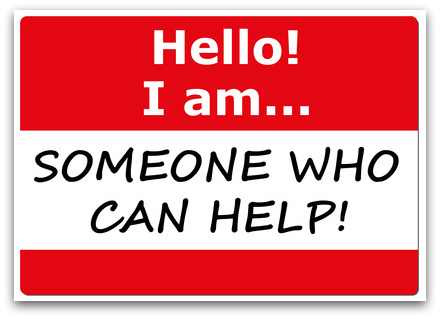Call Yourself A Coach? 3
“How do you get clients?” is a question I see and hear asked a lot. In today’s guest post Judy Rees shares her experience and knowledge in:

Call Yourself A Coach?
By Judy Rees
Do you call yourself a coach? A life coach, an executive coach, a wellbeing coach? Are you a mentor, advisor or counsellor? Or does your business card claim that you’re a “change agent” or even a “personal consultant”?
And does it matter? I think it probably matters quite a lot.
At one level, all the above titles could refer to the same role – someone who helps other people make lasting changes in their life or work.
But some of them sound a whole lot more appealing than others, don’t they? Which would you choose when you wanted help to make a lasting change? And more to the point, which would your potential clients choose?
It’s important to remember that people tend to define words like Humpty Dumpty in Alice – they use words to mean just what they choose them to mean, not necessarily what you expect them to mean.
I had a lovely example of this when I went to Jordan as a volunteer ‘mentor’ for young entrepreneurs, with a UK-based organisation called Mowgli.
I was worried, because I expected that mentoring must mean giving advice – and I wasn’t at all sure my experiences would be useful or relevant in this new cultural context.
Mentors advise. Coaches ask questions. Instructors, trainers and teachers provide instruction. Those were my definitions.
But that’s not what Mowgli meant by mentoring.
Their view was that mentors ask questions, perhaps tell stories, but aren’t expected to give advice. It’s coaches that teach people to do things – to fly planes, for example. For them, the exact work I think of as ‘coaching’ was called ‘mentoring’.
If your potential clients think a ‘coach’ is someone who offers training in a subject, it’s no wonder that people searching for ‘coaching’ look for a subject-area expert, rather than a process-driven generalist whose business card just says ‘coach’.
What words do your potential clients use to describe what you do? And how do these sit with your marketing?
About Judy Rees
My business card says “Judy Rees: X-Ray Listener”. At least it gets people to ask, “What’s that then?” 🙂 I tell them it means I help people to get un-stuck and make big changes in their lives by working with the metaphors which underpin their thinking and which drive their behaviour. For example, if they’re thinking of making “a big career jump” I help them decide if that’s the right jump, at the right time, for them, and help them build the fitness they need to make it. Hear more – and book a free sample session – at www.xraylistening.com
